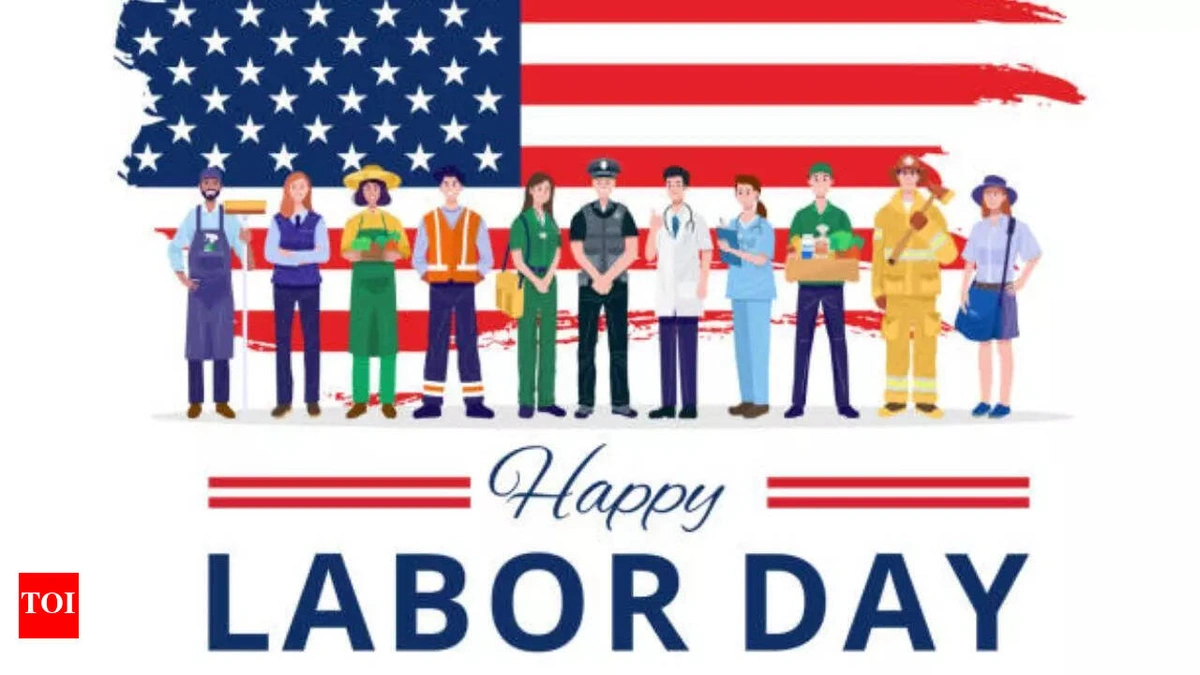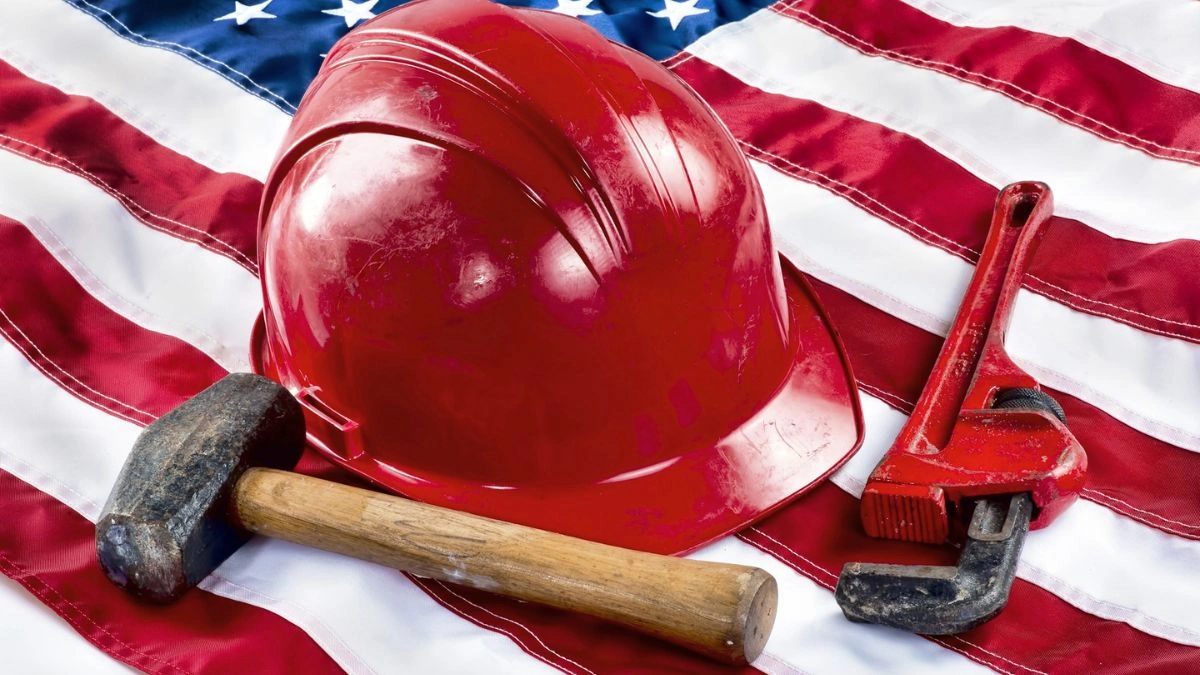Labour Day USA | More Than Just a Long Weekend—Here’s Why It Matters
Labour Day. For many, it’s the unofficial end of summer, a time for barbecues, and a well-deserved three-day weekend. But, honestly, it’s so much more than that. What fascinates me is how easily we can forget the why behind the holiday. It’s not just a day off; it’s a recognition of the struggles, sacrifices, and triumphs of the American workforce. Let’s dig deeper, shall we? It’s time to understand the real story behind Labour Day in the USA .
The Roots of Labour Day | A Fight for Fair Treatment

Okay, so here’s the thing: the late 19th century wasn’t exactly a picnic for workers. Imagine 12-hour workdays, six days a week, in often unsafe conditions. Child labour was rampant. Sound unbelievable? It was the norm. Out of this reality emerged a growing labour movement, demanding better conditions and fair treatment. The exact originator of the Labour Day idea is debated – some credit Peter J. McGuire of the Carpenters and Joiners, while others champion Matthew Maguire, a machinist. Regardless, the sentiment was the same: American workers deserved recognition.
The first Labour Day celebration took place in New York City on September 5, 1882, organized by the Central Labor Union. It wasn’t a government-sanctioned holiday yet; it was a demonstration, a show of solidarity. Oregon was the first state to make it a legal holiday in 1887. By 1894, Congress passed a law making Labour Day a federal holiday , celebrated annually on the first Monday of September. But, the story doesn’t end there. It’s about understanding the context and the ongoing relevance.
Why Labour Day Still Matters in the 21st Century
Now, you might be thinking, “Okay, that’s history. What does it have to do with me today?” Well, here’s why it matters. The struggles of those 19th-century workers laid the foundation for many of the rights and protections we enjoy today. Things like the 40-hour workweek, minimum wage laws, and workplace safety regulations weren’t just handed to us; they were fought for, tooth and nail. What fascinates me is that these hard-won rights require constant vigilance. As the nature of work evolves with globalization and technology, so do the challenges facing workers. From gig economy workers lacking basic benefits to the ongoing fight for equal pay, the spirit of Labour Day remains relevant.
Consider the rise of automation and artificial intelligence. While these technologies promise increased productivity and efficiency, they also raise concerns about job displacement and the need for workforce retraining. How do we ensure that the benefits of technological progress are shared equitably, and that workers are not left behind? These are the questions that Labour Day encourages us to consider.
Labour Day | A Celebration of the American Workforce and the economic contributions
Let’s be honest, many see Labor Day weekend as a chance to snag some great deals. And retailers know it! It’s a prime time for sales and promotions. But beyond the shopping, it’s worth remembering that Labour Day is a celebration of the American workforce . It’s a tribute to the millions of people who contribute to the nation’s prosperity.
From the farmers who grow our food to the teachers who educate our children, from the healthcare workers who care for the sick to the construction workers who build our infrastructure, every job contributes to the fabric of our society. Labour Day is a chance to acknowledge and appreciate these contributions. A common mistake I see people make is thinking only of manual labor. But the workforce is diverse, encompassing a wide range of skills, talents, and professions.
The Future of Work | Navigating Challenges and Opportunities
The future of work is uncertain. What will the workplace look like in 10, 20, or 50 years? What new skills will be required? How will we address the challenges of income inequality and job security? The one thing you absolutely must remember is that these questions require ongoing dialogue and collaboration between workers, employers, and policymakers. Labour Day provides an opportunity to reflect on these issues and to chart a course towards a more just and equitable future of work.
And, as per the official statement, we are observing how things are evolving with the rise of remote work, the gig economy, and the increasing importance of skills-based training. It’s not just about having a job; it’s about having the skills and opportunities to thrive in a rapidly changing world. We must ensure that education and training systems are aligned with the needs of the economy, and that workers have access to the resources they need to adapt and succeed.
Reflecting on Progress and Embracing Change
So, this Labour Day, take a moment to appreciate the progress that has been made in improving the lives of workers in the USA. But also recognize that the fight for fair treatment and economic opportunity is far from over. Embrace change, adapt to new challenges, and continue to strive for a better future of work for all. Consider this: The holiday is more than just a day off. It’s a reminder of our collective responsibility to create a society where everyone has the opportunity to earn a decent living and to contribute to the nation’s success.
It’s about ensuring that the American Dream remains within reach for all, regardless of background or circumstance. It’s about building a more just, equitable, and prosperous society for generations to come. Also, remember to check the Department of Labor’s website for more details.
FAQ About Labor Day USA
What is the main purpose of Labour Day?
It’s a yearly celebration of the social and economic achievements of the American workforce.
When did Labour Day become a federal holiday?
In 1894, Congress officially declared it a federal holiday.
Why is Labour Day celebrated on the first Monday of September?
The specific reason is debated, but it was chosen to fall between Independence Day and Thanksgiving, providing a symbolic break.
Is Labour Day just about celebrating unions?
While unions played a crucial role in establishing the holiday, it celebrates all workers.
What are some common ways people celebrate Labour Day?
Barbecues, picnics, parades, and travel are common activities. Many also view it as the unofficial end of summer.
How does Labour Day promote economic growth?
Labour day promotes economic growth by increased travel and consumer spending.













